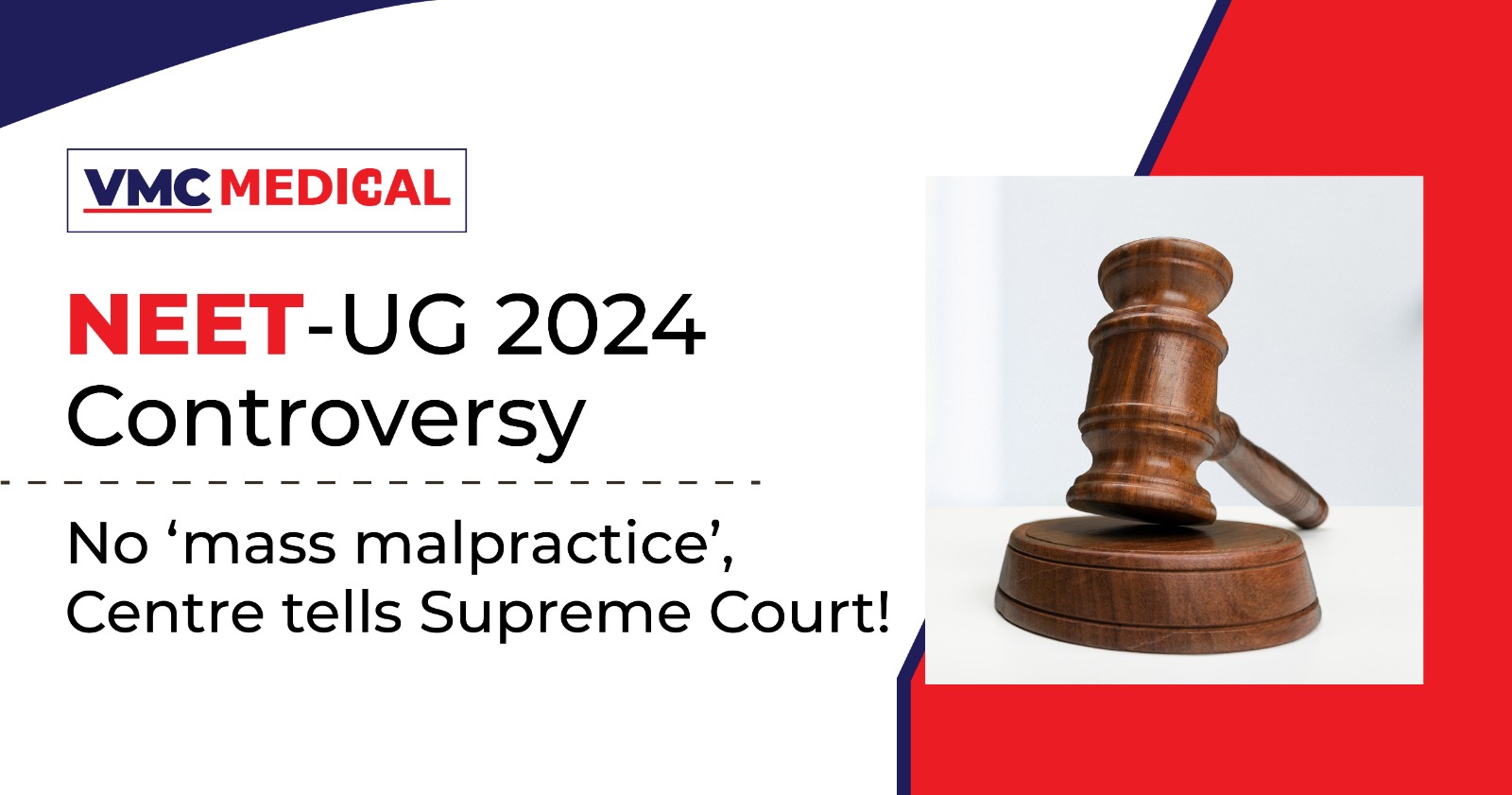NEET-UG 2024 Controversy: – No ‘mass malpractice’, Centre tells Supreme Court!
 Posted On
Posted On
172 total views, 1 views today
The ongoing controversy surrounding the NEET-UG 2024, India’s prominent medical entrance exam, has captured national attention due to allegations of irregularities and malpractices. On July 8, 2024, the Supreme Court of India resumed hearings on multiple petitions questioning the integrity of the May 5 exam, which included demands for its cancellation and a call for a fresh examination.
A significant concern raised during the hearing was the apparent leakage of exam questions, undermining the sanctity of the entire process. Chief Justice of India, D.Y. Chandrachud, acknowledged the seriousness of the issue, asserting that the compromise of exam integrity was indisputable. Despite this, the court emphasized that canceling the exam outright would be an extreme measure affecting the futures of more than 23 lakh students, highlighting the complexity and gravity of the situation.
The Supreme Court bench posed direct queries to the Union government and the National Testing Agency (NTA), which is tasked with administering NEET-UG. They were tasked with providing detailed responses regarding the timeline and specifics of the alleged leak: when and where it was first detected, how it was disseminated, the interval between the leak and the exam date, efforts to identify those who benefitted, and the methods employed to do so. This directive aimed to unravel the extent of the breach and ascertain accountability.
In response to the court’s scrutiny, the Centre presented findings from a data analytics report by the Indian Institute of Technology-Madras, asserting that there was no evidence of widespread malpractice or localized benefit to specific candidates in NEET-UG 2024. Separately, the NTA refuted claims that 67 candidates scored a perfect 720, stating the actual number was 61, thereby challenging allegations of widespread perfect scoring as misleading.
NEET-UG, conducted by the NTA, serves as the gateway for admission to undergraduate medical (MBBS), dental (BDS), AYUSH, and related courses across India’s diverse spectrum of educational institutions, both public and private.
The controversy has not only raised questions about the integrity of the examination process but also highlighted systemic vulnerabilities and the imperative for robust safeguards. With the future of thousands of aspiring medical students hanging in the balance, the judicial scrutiny and public discourse surrounding NEET-UG 2024 are pivotal.
Understanding the Significance of NEET-UG
NEET-UG, instituted to streamline the admission process for medical and dental courses, plays a crucial role in ensuring merit-based admissions across the country. Its implementation by the NTA is intended to uphold fairness and transparency, offering equal opportunities to students from various backgrounds aspiring to pursue careers in healthcare.
Judicial and Governmental Response
The Supreme Court’s proactive approach in dealing with the NEET-UG controversy highlights its dedication to maintaining the credibility of educational evaluations.
By demanding accountability from the NTA and the government, the court aims to safeguard the interests of students and maintain the credibility of the examination system.
The government’s assertion, supported by IIT-Madras’ data analytics, attempts to reassure stakeholders that the alleged malpractices did not significantly compromise the overall fairness of the exam. This stance, however, faces scrutiny amidst persisting allegations and demands for more rigorous investigation into the reported discrepancies.
Implications for Students and Institutions
For the over 23 lakh students who appeared for NEET-UG 2024, the outcome of these judicial proceedings holds immense significance. Any decision regarding the exam’s validity or re-conduct will directly impact their academic pursuits and career aspirations. Similarly, educational institutions relying on NEET-UG scores for admissions face uncertainty, awaiting clarity on the exam’s integrity and the subsequent admissions process.
Calls for Reform and Strengthening Oversight
The NEET-UG 2024 controversy has sparked discussions about the need for enhanced security measures and stricter oversight in conducting national-level examinations. Suggestions for reform include leveraging technology to prevent leaks, implementing real-time monitoring mechanisms, and fostering greater transparency in the examination process.
Closing Thoughts
As the Supreme Court continues to deliberate on the NEET-UG 2024 controversy, the nation awaits a resolution that balances justice for affected students with the integrity of India’s educational assessment framework. The outcome will not only shape the future of medical education admissions but also influence broader reforms aimed at fortifying the credibility and fairness of national entrance examinations. In navigating this complex landscape, transparency, accountability, and a commitment to upholding educational standards remain paramount. As stakeholders engage in dialogue and deliberation, the lessons learned from NEET-UG 2024 will undoubtedly inform policies and practices to prevent similar challenges in the future, ensuring equitable opportunities for all aspiring healthcare professionals across the nation.




